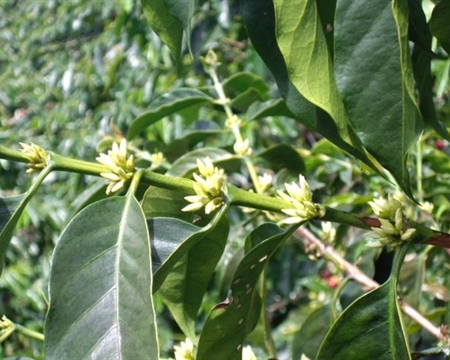Sumatra Dolok Sanggul Desha Dogul Fully Washed GrainPro
Bags 0
Warehouses Vancouver
Flavor Profile Red apple, orange zest, tobacco, sweet
Out of stock
About this coffee
Grower
Farmers organized around PT. Indokom Citra Persada
Altitude
1400 - 1700 masl
Variety
Ateng Super, Sigararutang, Lasuna, Typica
Soil
Volcanic loam
Region
Dolok Sanggul sub-district, Humbang Hasundutan Regency, North Sumatra, Sumatra
Process
Fully washed and dried on raised beds
Harvest
August – December; March - June
Certification
Conventional
Coffee Background
Lake Toba, in North Sumatra, is a crater lake, considered the world’s deepest, and its origins are believed to have been 75,000 years ago in the aftermath of the largest volcanic eruption on geological record. The lake’s surrounding area is lined with plateaus of various elevations and is pastoral, humid, and cool. This part of Sumatra is less dense with coffee than Aceh, Sumatra’s northern tip. However, coffees from the Toba area—commonly referred to as Lintong, after its most famous district, or Batak, after the region’s dominant ethnicity—are known for some of the more buoyant and acid-defined coffees on the entire island.
Sumatra’s smallholder coffee is a complicated value chain. Processing is typically not overseen by a single individual or even a single business as it is almost everywhere else in the producing world. Instead coffee moves task by task through different hands, from growers to collectors to fermenters to millers, often to multiple different warehouses, all before final cleaning and bagging for export.
Climate is the main driver of the hot-potato-like tradition: Sumatra is equatorial and in many areas coffee farms are picking slowly but consistently most of the year; likewise, there is almost constantly a threat by roaming rainstorms to spoil drying coffee. As a result, the incentive for small farmers is to pick small amounts often, and consolidate quickly into local collectors with safe warehouses. Additionally, highland communities adopted the use of machines that would “wet-hull” coffee, or remove the parchment from coffee soon after fermentation at very high moisture levels, often 35% humidity or above, in order to be able to patio-dry coffee quickly during the brief sunny periods available.
But not all coffees are processed this way. PT. Indokom Citra Persada (Indokom), a longtime exporter partner of Royal, works with Timbul Naibaho, a miller in Dolok Sanggul, who specializes in delicious fully washed (or rather, fully dried) coffees that express the richness and complexity of the Toba area. These coffees are able to avoid the wet hulling stage thanks to added drying infrastructure. The farmers that sell to Timbul tend to have their own wooden hand-crank depulpers at home, so they typically depulp the day’s pickings, ferment them overnight in a nylon sack, and then partially-dry the parchment for a few hours on home patios before sending it to Timbul’s mill. Once there, the parchment continues to dry in a series of large covered patios. With the ample space available the coffee is raked consistently and allowed to remain outdoors, safe from precipitation, until the moisture reaches 12.5%. It is a very gradual process due to the area’s humidity, but the results are clearly worth it. Fully-dried parchment is sent to Indokom’s headquarters in Medan, Sumatra’s main coffee port, where it will dry the last final amount before being milled at last for export.
Together, Indokom and Timul Naibaho support one another’s businesses and also provide training at the farmer level, distribute school supplies to families with school age children, and give out holiday gifts to boost farmer morale and keep the community strong. The careful work of contributing farmers shows nicely in the final lot, which tastes luxuriously sweet and soft, with marshmallow, cocoa powder, almond paste, and ripe mango.

